Teeter-Totter Wall at U.S.-Mexico border named Beazley Design of the Year 2020
By Alexander Walter|
Tuesday, Jan 19, 2021
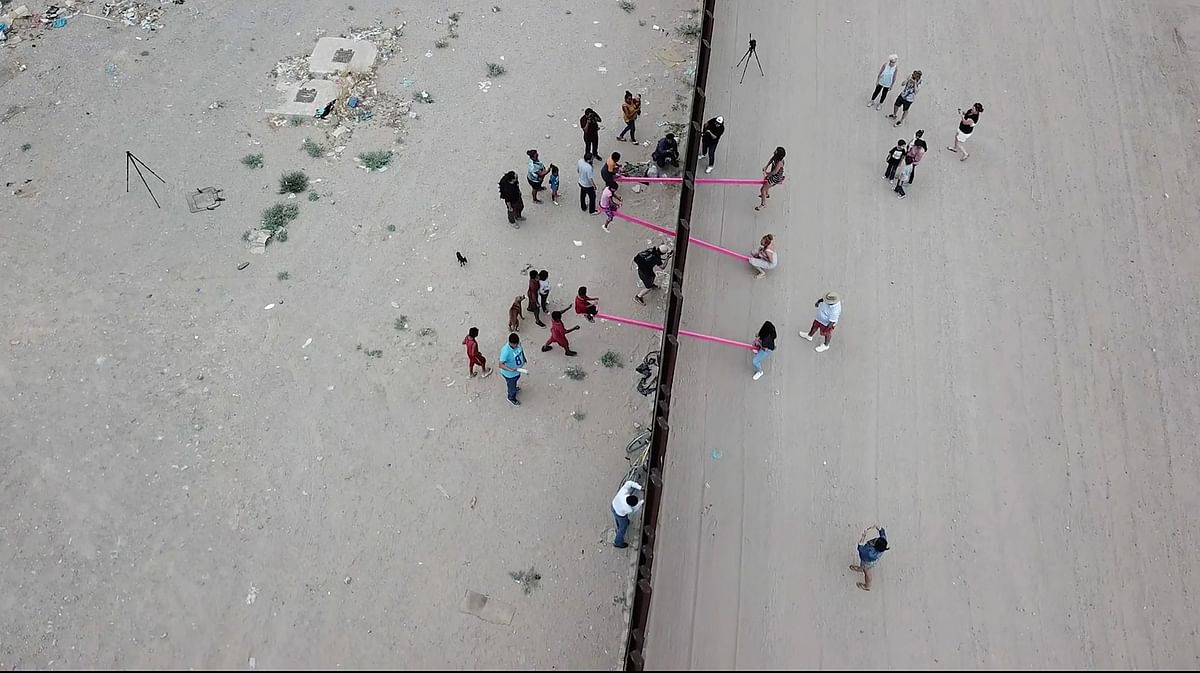
Related
The binational Teeter-Totter Wall intervention, connecting children on both sides of a U.S.-Mexico border fortification through three bright pink see-saws for a brief, viral moment in 2019, has been named the Beazley Design of the Year 2020.
"It is great to see a project that is seriously playful and playfully serious is the winner," said Tim Marlow, Chief Executive and Director of the Design Museum in London. "It remains an inventive and poignant reminder of how human beings can transcend the forces that seek to divide us."
Awards were also presented to designers whose creations had a broad social impact in the categories architecture, digital, fashion, graphics, product, and transport.
Following COVID-related lockdown restrictions, the Design Museum is hosting a virtual exhibition of this year's most innovative designs until March 28.
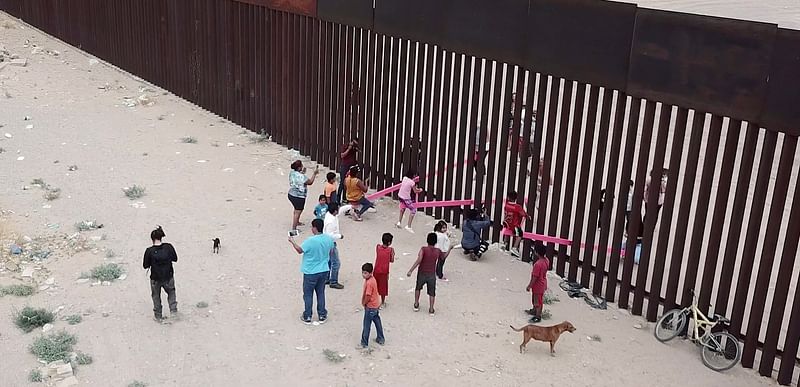
Beazley Design of the Year 2020 & Transport Category Winner:
Name: Teeter-Totter Wall
Designers: Ronald Rael and Virginia San Fratello with Colectivo Chopeke
Summary: "Architecture studio Rael San Fratello have been researching the border that separates Mexico from the USA since 2009. Viewing the boundary as a site that severs relationships between the two countries, they wanted to create a place where those across the border could connect, designing three bright pink ‘teeter-totters’ (see-saws) to slot into gaps in the steel border wall. One designer worked from Juárez in Mexico and another in El Paso, USA. For just under twenty minutes on 28 July 2019, residents of El Paso and the Anapra community in Mexico could, for the first time, unite through play."
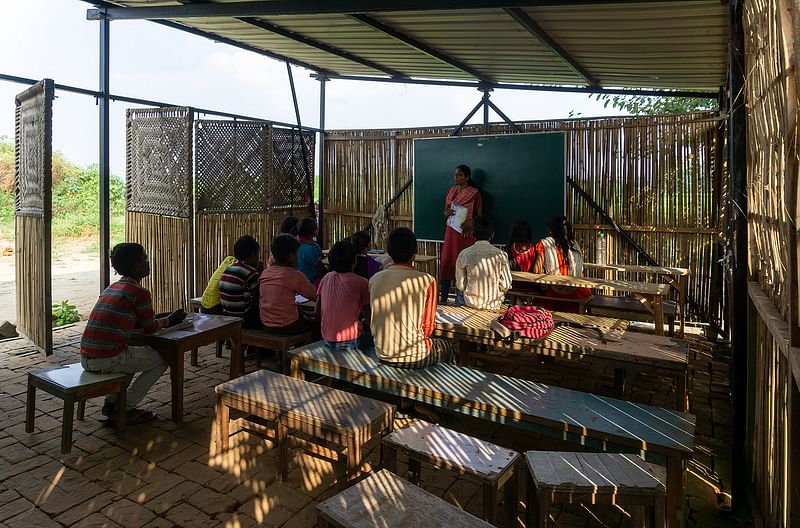
Architecture:
Name: ModSkool
Designers: Social Design Collaborative
Summary: "ModSkool is a school that is designed to be easily erected and dismantled in response to forced evictions of farming communities on the floodplains of the Yamuna river in India. First built in 2017 in less than three weeks by students, school staff, parents and local volunteers, the school was dismantled one year later due to landownership issues. The new school, relocated further south in 2019, was held together with the form of weave used for a charpoy, a multifunctional piece of furniture traditionally used as a daybed. The school’s design mirrors its teaching methods, which focus on a holistic education that includes issues of sustainability."
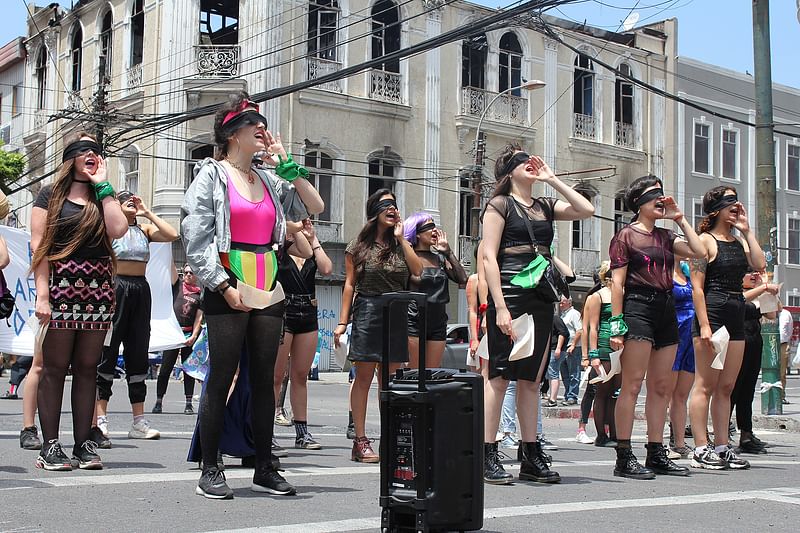
Digital:
Name: A Rapist in Your Way (‘Un violador en tu camino’)
Designers: Colectivo LASTESIS
Summary: "A protest performance denouncing sexual violence against women and LGBTQ communities, A Rapist in Your Way was devised by the Chilean feminist arts group Colectivo LASTESIS. It is rooted in studies of rape in Latin America, specifically the work of the Argentine anthropologist Rita Segato. The first performance in Valparaíso in November 2019 highlighted the use of political-sexual violence by the police during a recent social uprising. It has been replicated by protestors in Chile and around the world in multiple languages."
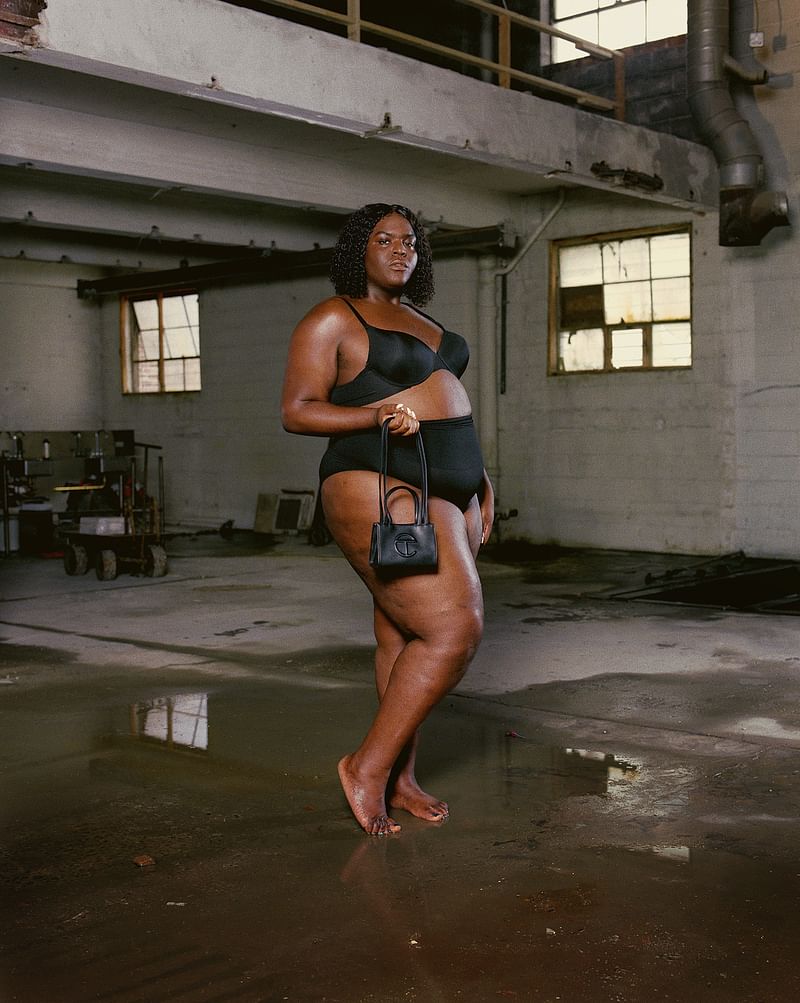
Fashion:
Name: Telfar bag
Designers: TELFAR
Summary: "Dubbed ‘the accessory of the decade’ by Dazed, the vegan leather, gender-neutral Telfar bag has become highly coveted. The bags are available in a wide array of colors, and in three sizes that correspond to those of Bloomingdale’s disposable shopping bags. They are priced according to the average earnings of a New York DJ for a single night’s work. Telfar bags represent the brand’s ethos that luxury should be both practical and financially accessible, with restocks and new colors now selling out online in minutes."
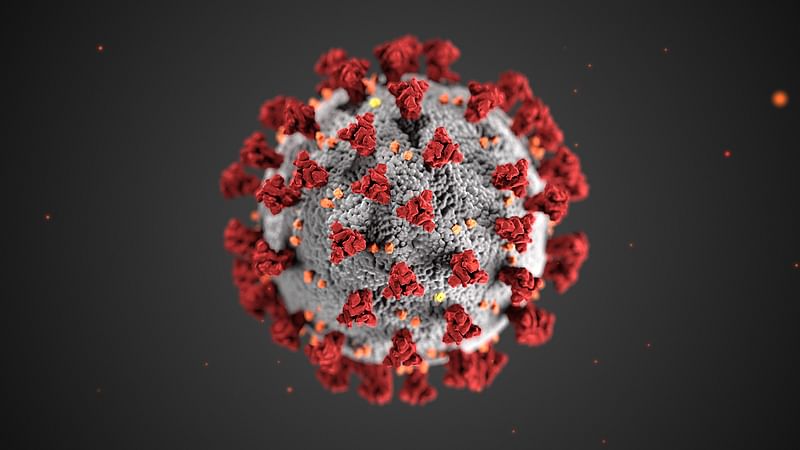
Graphics:
Name: 3D rendering of SARS-CoV-2
Designers: Alissa Eckert (MSMI) and Dan Higgins (MAMS)
Summary: "This is an image of the novel coronavirus, identified as Severe Acute Respiratory Syndrome coronavirus 2 (SARS-CoV-2), that causes the illness COVID-19. It was commissioned by the US health organization Centers for Disease Control and Prevention (CDC), which opened its emergency operations center for the COVID-19 outbreak in January 2020. The purpose of commissioning this image was to help raise public awareness of the oncoming pandemic. The image depicts the virus as viewed through a microscope: a speckled grey sphere with bright red spikes that create the now infamous crown-like appearance of the virus. Using lighting, texture, contrast, and color, Eckert and Higgins give the virus a beautiful yet deadly form."
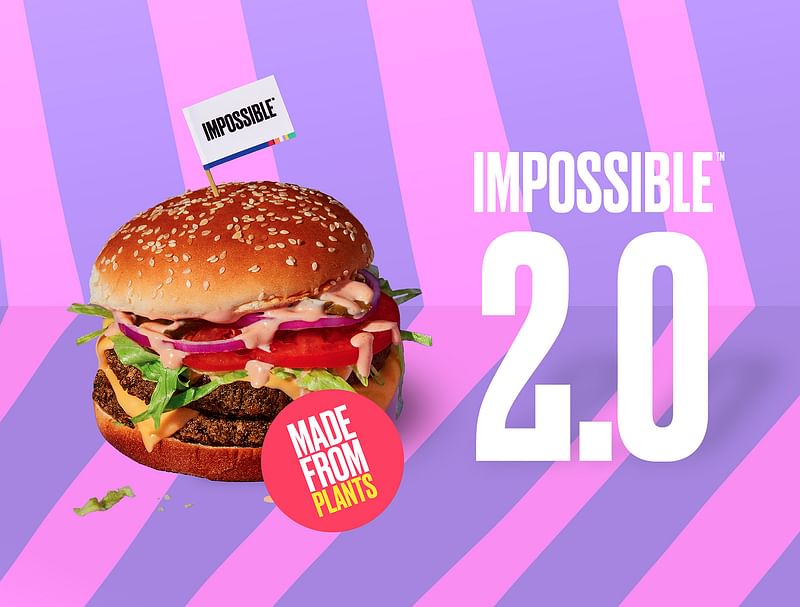
Product:
Name: Impossible Burger 2.0 ‘A Better Meat for the Planet’
Designers: Impossible Foods
Summary: "Impossible Burger 2.0 is more sustainable than its predecessor, which was launched in 2016, and aims to be tastier, juicier, and – crucially – beefier. Although the patty is made from plant-based proteins and is suitable for vegans, its core consumers are meat eaters. It is currently served in thousands of restaurants and is entering grocery stores worldwide. It is kosher, halal, and gluten-free certified, and fortified with as much iron and protein as a comparable serving of ground beef."
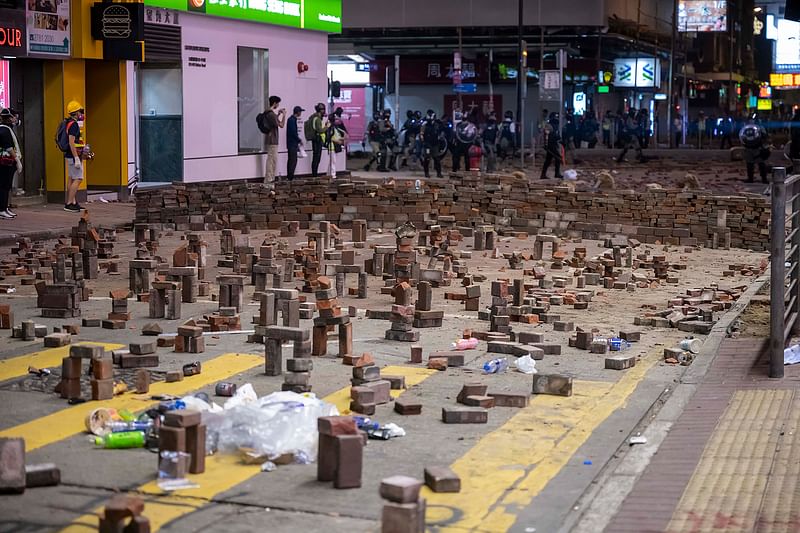
People's Choice Award:
Name: Brick arches
Designers: Hong Kong protestors
Summary: "Made from ordinary bricks, these small but powerful structures were used by Hong Kong protestors from the pro-democracy movement as roadblocks to slow down police vehicles. When struck by a wheel, the top block falls away leaving the two remaining bricks, which together form a buttress that prevents the wheel from moving forward. These arches were referred to locally as ‘mini-Stonehenges’ or ‘brick battlegrounds’. Easier to make and more difficult to clear than ordinary roadblocks, they became widespread when the protests escalated in November 2019."

RELATED NEWS DS+R and Rockwell Group, WORKac, MAIO, Junya Ishigami among Beazley Designs of the Year architecture nominees

RELATED NEWS Forensic Architecture's Counter Investigations is crowned Beazley Design of the Year 2018


Share
0 Comments
Comment as :